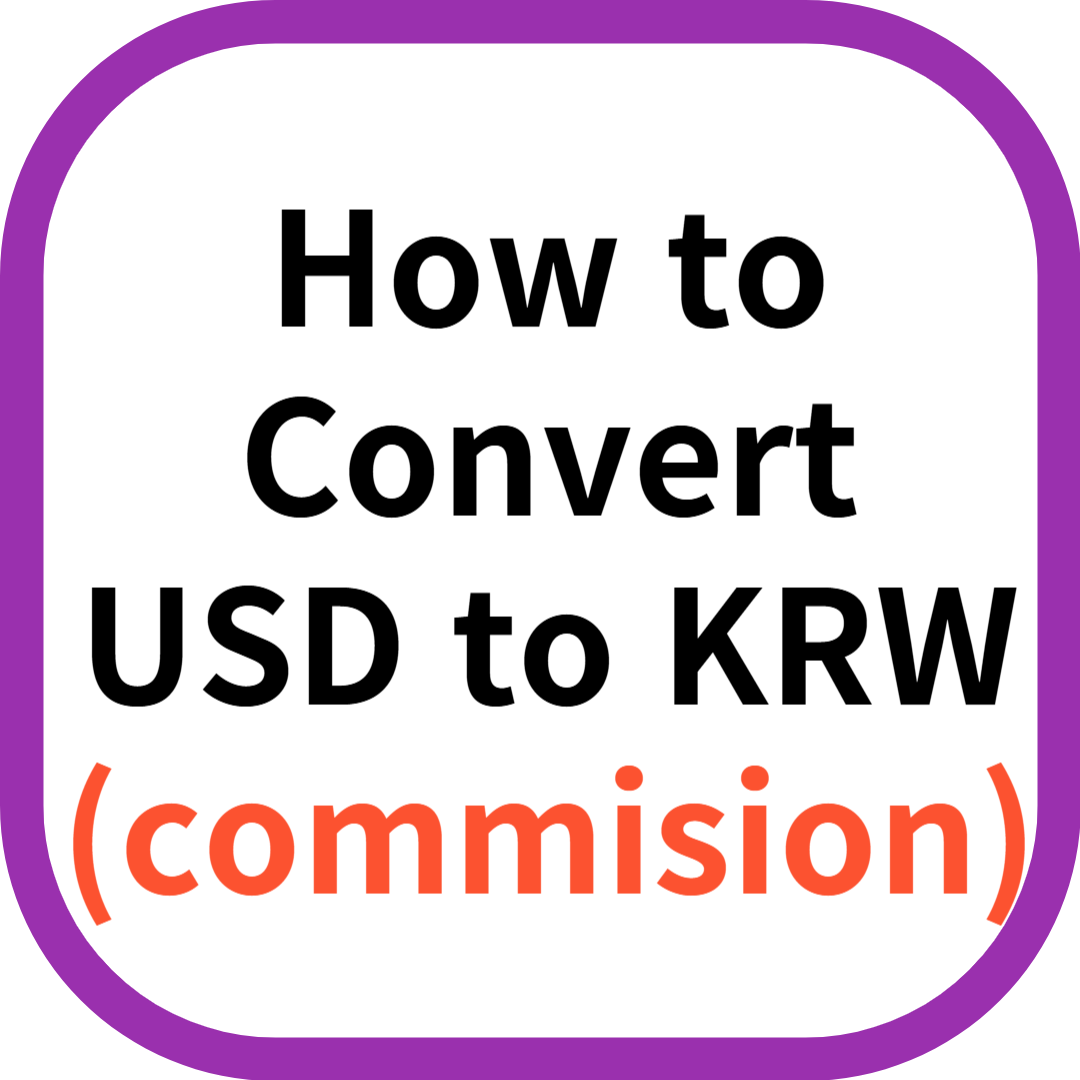How to Convert USD to KRW
Converting US Dollars (USD) to South Korean Won (KRW) is a straightforward process, but understanding the best methods and tips can help you get the most value.
Here are some key steps and considerations:
1. Use Online Currency Converters
Online currency converters are a convenient way to get real-time exchange rates.
Websites like XE.com or OANDA provide up-to-date rates and can help you calculate how much KRW you will receive for your USD.
These tools are especially useful for quick conversions and planning your budget before traveling.
how to exchange money
2. At Banks
Banks in South Korea, such as KEB Hana Bank, Shinhan Bank, and Woori Bank, offer competitive exchange rates and reliable services.
It’s advisable to exchange money at these banks rather than at airports, where rates are typically less favorable.
Bank staff can assist you in English, making the process smoother for international visitors.
Remember to bring your passport, as it is often required for currency exchange transactions.
3. Use ATMs
ATMs in South Korea are widely available and can be a convenient option for withdrawing KRW directly from your bank account.
Look for ATMs that display the global ATM network logos like Cirrus, Plus, or Maestro.
Be aware of any foreign transaction fees your bank may charge, and consider withdrawing larger amounts to minimize these fees.
Practical Tips for Getting the Best Exchange Rates
To get the best exchange rates when converting USD to KRW, consider the following tips:
1. Monitor Exchange Rates
Keep an eye on exchange rate trends and convert your money when rates are favorable.
Various financial news websites and currency converter apps provide real-time updates on exchange rates.
2. Avoid Airport Exchanges
Currency exchange services at airports often charge higher fees and offer less favorable rates.
It’s better to exchange money at banks or authorized currency exchange centers.
3. Use Credit Cards Wisely
Some credit cards offer competitive exchange rates and low foreign transaction fees.
However, it’s important to check with your bank about any additional charges that may apply.
Using credit cards for larger purchases can be more convenient and secure, but always have some local currency on hand for smaller transactions.
Best Places to Exchange Currency in South Korea
1. Banks
Banks such as KEB Hana Bank, Shinhan Bank, and Woori Bank are reliable places to exchange currency.
They offer competitive rates and professional services. Banks are typically open from 9:00 AM to 4:00 PM, Monday to Friday.
It’s advisable to visit during these hours to avoid any inconvenience.
2. Currency Exchange Centers
Currency exchange centers are widely available in popular tourist areas like Myeongdong, Hongdae, Dongdaemun, and Itaewon.
These centers often offer better rates than those at airports.
Some well-known exchange centers include Myeongdong Ilpumhyang Money Exchange and Myeongdong “Embassy Exchange” located in front of the Chinese Embassy.
3. Global ATMs
Global ATMs are another convenient option for withdrawing KRW.
These ATMs are available at major banks and tourist spots.
Look for ATMs that display logos of international networks like Cirrus, Plus, or Maestro.
Major Korean banks such as Woori, Kookmin, KEB Hana, and Shinhan have Global ATMs.
Be mindful of any fees your bank may charge for international withdrawals.
Understanding Exchange Fees
When exchanging currency, it’s important to be aware of the fees involved. Here are some common fees you might encounter:
1. Bank Fees
Banks typically charge a fee for currency exchange services.
In South Korea, this fee usually ranges from 3,300 KRW to 4,300 KRW per transaction4.
It’s a good idea to check with your bank beforehand to understand the exact fees.
2. ATM Fees
Using ATMs to withdraw KRW can also incur fees.
These fees are usually around $3 to $5 per transaction3.
Additionally, your home bank may charge a foreign transaction fee, so it’s wise to check with your bank about these charges.
3. Currency Exchange Center Fees
Currency exchange centers may offer competitive rates, but they often include a service fee.
It’s important to compare the total cost, including any fees, to ensure you’re getting the best deal.
Molar Implants: Costs, Comparisons, and Care – nationalinfo (soomarket.com)
